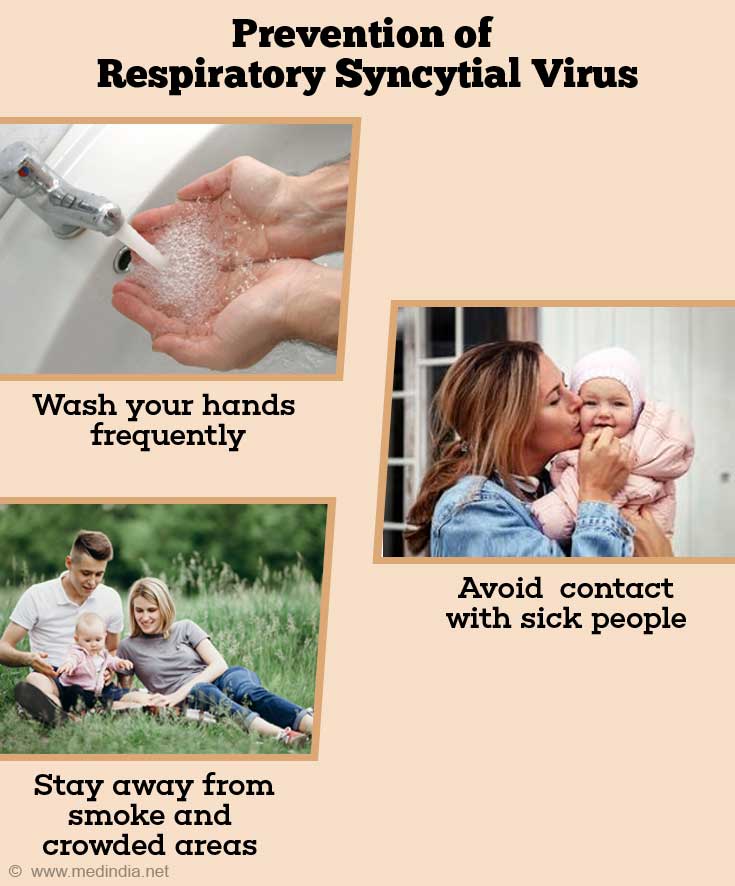How do you Diagnose Respiratory Syncytial Virus (RSV)?
- Your doctor will conduct a physical examination in which the general condition of the child and body temperature is noted. Then the doctor will listen to the lung sounds with a stethoscope to check for wheezing or other abnormal sounds
- Blood tests to check for RSV or other germs
- X-ray of the chest
- Examine the nasal and throat secretions for RSV (throat/nasal swab)
- Pulse oximetry to check oxygen saturation levels in blood
How can you Treat Respiratory Syncytial Virus (RSV)?
Treatment for RSV is symptomatic and mostly includes home care supportive measures to make your child comfortable.
- Use OTC medicines such as acetaminophen to reduce high fever
- Use saline nasal drops frequently and suction out the sticky nasal discharge to clear a stuffy nose
- Offer plenty of fluids throughout the day and continue breast feeding in babies
- Keep air moist with cool mist vaporizer to make breathing easier. It also helps to reduce the throat irritation and cough
If the RSV infection is severe, hospital admission may be needed and treatment includes:
- Intravenous fluids
- Oxygen
- Respirator or breathing machine
- Medicines such as bronchodilators to open the airways
- Antibiotics, if bacterial infection is also present
Steps you can take to try to avoid and prevent RSV
- Wash your hands frequently
- Keep school age kids with cold away from babies. Also avoid kissing or cuddling baby if you have a cold
- Allow other people to touch your baby only after washing their hands
- Keep tabletops, doorknobs and other hard surfaces clean
- Check that good hygiene practices are being followed in daycare centers
- Limit the time your infant spends in daycare centers at time when RSV is prevalent
- Keep your baby away from smoke and crowded areas
- High risk babies can be given Palivizumab in monthly doses during peak RSV season.






